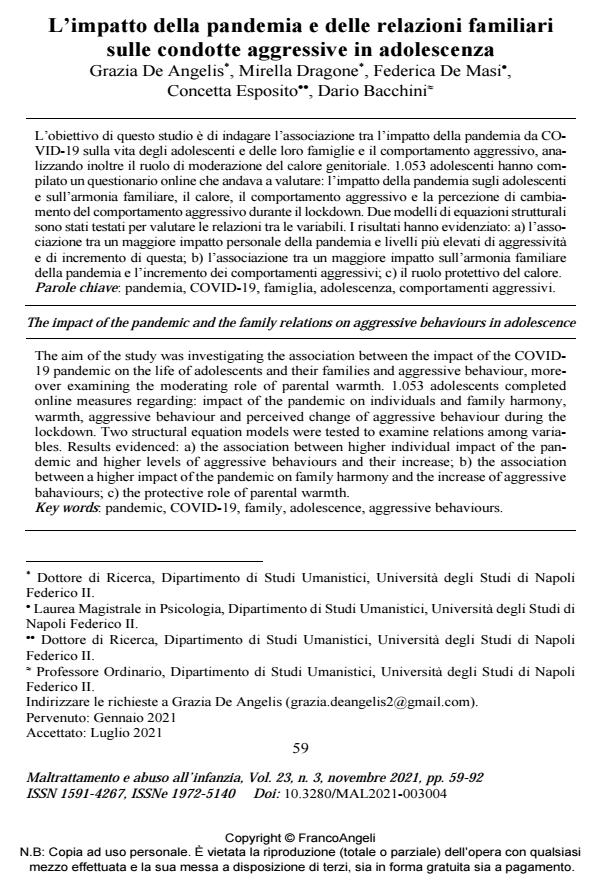The impact of the pandemic and the family relations on aggressive behaviours in adolescence
Journal title MALTRATTAMENTO E ABUSO ALL’INFANZIA
Author/s Grazia De Angelis, Mirella Dragone, Federica De Masi
Publishing Year 2021 Issue 2021/3
Language Italian Pages 34 P. 59-92 File size 382 KB
DOI 10.3280/MAL2021-003004
DOI is like a bar code for intellectual property: to have more infomation
click here
Below, you can see the article first page
If you want to buy this article in PDF format, you can do it, following the instructions to buy download credits

FrancoAngeli is member of Publishers International Linking Association, Inc (PILA), a not-for-profit association which run the CrossRef service enabling links to and from online scholarly content.
The aim of the study was investigating the association between the impact of the COVID-19 pandemic on the life of adolescents and their families and aggressive behaviour, moreo-ver examining the moderating role of parental warmth. 1.053 adolescents completed online measures regarding: impact of the pandemic on individuals and family harmony, warmth, aggressive behaviour and perceived change of aggressive behaviour during the lockdown. Two structural equation models were tested to examine relations among variables. Results evidenced: a) the association between higher individual impact of the pandemic and higher levels of aggressive behaviours and their increase; b) the association between a higher im-pact of the pandemic on family harmony and the increase of aggressive bahaviours; c) the protective role of parental warmth.
Keywords: pandemic, COVID-19, family, adolescence, aggressive behaviours.
- Filial responsibilities and psychological wellbeing among Chinese adolescents in poor single-mother families: does parental warmth matter? Janet T. Y. Leung, Daniel T. L. Shek, in Frontiers in Psychology 1341428/2024
DOI: 10.3389/fpsyg.2024.1341428
Grazia De Angelis, Mirella Dragone, Federica De Masi, L’impatto della pandemia e delle relazioni familiari sulle condotte aggressive in adolescenza in "MALTRATTAMENTO E ABUSO ALL’INFANZIA" 3/2021, pp 59-92, DOI: 10.3280/MAL2021-003004